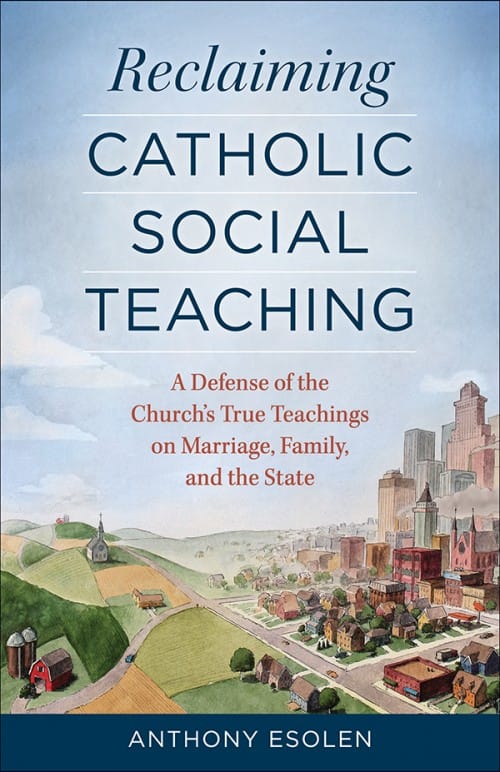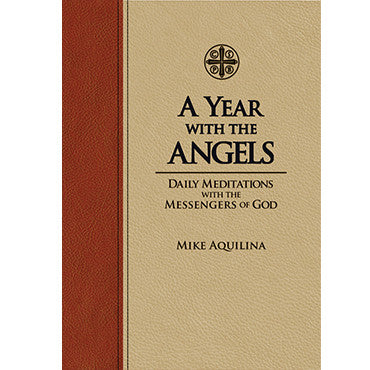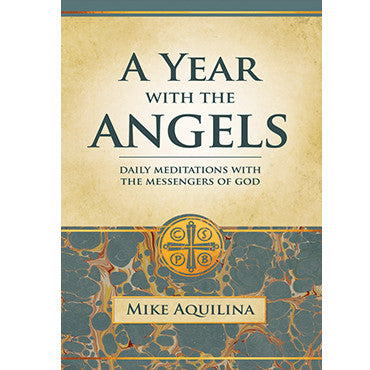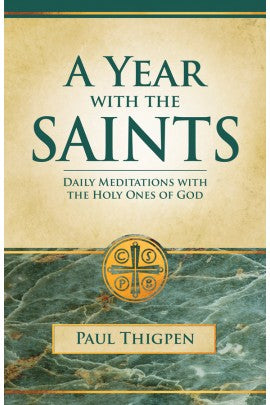by Anthony Esolen
Many claim that Catholic Social Teaching
implies the existence of a vast welfare state.
They couldn't be more wrong.
In Reclaiming Catholic Social Teaching, Anthony Esolen pulls back the curtain on these false philosophers, showing how they've undermined the authentic teachings of the Church in order to neutralize the biggest threat to their plans for secularization — the Catholic Church.
Esolen explains that Catholic Social Teaching isn't focused exclusively on serving the poor. Indeed, it offers us a rich treasure of insights about the nature of man, his eternal destiny, the sanctity of marriage, and the important role of the family in building a coherent and harmonious society.
Catholic Social Teaching offers a unified worldview. What the Church says about the family is inextricable from what she says about the poor: and what she says about the Eucharist informs the essence of her teachings on education, the arts — and even government.
You will step away from these pages with a profound understanding of the root causes of the ills that afflict our society, and — thanks to Anthony Esolen — well equipped to propose compelling remedies for them.
Only an authentically Catholic culture provides for a stable and virtuous society that allows Christians to do the real work that can unite rich and poor.
We must reclaim Catholic Social Teaching if we are to transform our society into the ideal mapped out by the Church: a land of sinners, yes, but one enriched with love of God and neighbor and sustained by the very heart of the Church's social teaching: the most holy Eucharist.
Among the many vital topics covered in this compelling book:
THE SOCIAL NEED FOR RELIGION
- Why the survival of civil society demands that we make moral judgments
- A good and a true society: learn in detail what it would look like
- Secular humanism: why it’s a contradiction in terms
- Why a city without God is not a bad city: it’s no city
HUMAN LIBERTY
- Why Pope Leo denounced the “thirst for novelty,” and the “lost for new things” – and why you must, too
- Why true piety always gives the benefit of the doubt to what has come from our forefathers
- Why every government that rejects the natural law will fall
- Government gridlock: it’s inevitable in a godless society (Pope Leo foretold it over a century ago)
- Us or them: Why the secular state must crush the Church
MARRIAGE
- What even pagans understand about marriage (but America has forgotten)
- How acceptance of divorce corrodes all other human relations, mortally wounding society itself
- The inner unity between Catholic teachings about sex and Catholic teachings about society
- Sexual sin: Pope Leo shows how it leads either to chaos or (yes!) to rule by a totalitarian State
THE FAMILY
- Parental rights: how they can neither be abolished nor absorbed by the state
- The family: it’s not defined by the state (Indeed, the state comes forth from the family and must answer to them)
- The one thing parents must be sure to teach their children (Are you doing it?)
SOCIAL LIFE
- Why government is always less effective than free associations of men and women
- Hands off! Why rulers have no right to interfere in religious organizations
- The Boy Scouts: Pope Leo shows why its rules are not the business of government
- Catholic hospitals: Why secular governments must inevitably come to hate – and attempt to destroy — the church’s charitable work with the poor and downcast. Pope Leo predicted it hundred years ago
THE CHURCH AS A SOCIETY
- Religion — and religion alone — can create genuine communities (Can you explain why?)
- How the church herself is the consummate society
- Authority: moderns hate it, but it is both necessary and blessed.
- Democracy: religion can thrive without it, but democracy collapses without religion.
THE STATE
- The four obligations of every state: how their fulfillment promotes the moral and material prosperity of all its citizens
- Private ownership: why the state should not only favor but must foster it
- True culture: how it’s opposed to mass education, mass politics, and mass entertainment
- Families: they are not measured by the good they bring to the state; the state is measured by the good it






